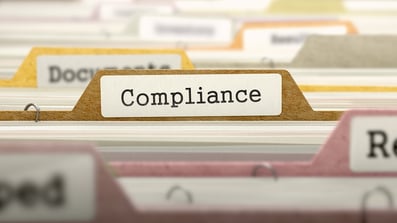Sales Tax Scaries 4: Nexus and Taxability
When Sales Tax Creeps Up on You
Ever notice how the first characters in every horror movie never...

When you think about tax compliance, of any kind, the first thing that comes to mind is filing, or even the tax return itself. Compliance with sales tax goes way beyond that.
Here are some other aspects of sales tax that you shouldn’t overlook when trying to ensure your company remains compliant.

Thinking Nexus is Static: Figuring out where you have nexus is key to determining your liability. The word refers to your company’s connection with a state that’s substantial enough for that state (or other taxing jurisdiction) to hold you accountable to their sales tax laws.
This trigger point is determined by a physical or economic presence. Economic nexus is determined by a minimum number of sales or minimum dollar amount of sales, generally during a year. You can also generate nexus through a physical presence by an office location, employees, traveling into states (even for a sales pitch or demo), using subcontractors in given states to fulfill contracts with customers, or by just exhibiting at trade shows.
It’s a lot to keep up with, but it’s also not a one-time job. As your business evolves so can your nexus. Be sure to monitor your nexus on a regular basis to be aware of any changes in your footprint or the rules associated with your obligations.
Tax notices: Tax authorities love to send notices once a business registers to collect and remit sales tax. This correspondence includes notifications of law and tax rate changes, blank tax forms, account changes and other items regarding previously filed tax returns, among other things.
Though much of this communication requires only minor attention on your part, some of this mail requires scrutiny – and potentially action on your part. And often the needed action is on a timeline. Stay on top of this correspondence and keep documentation of everything in order to not be at risk of penalties and fees
Calendar upkeep: Along with a lot of correspondence comes a lot of deadlines. With sales tax, you’re often looking at multiple deadlines a month, that can change from month-to-month. . Maintaining a tax calendar to reflect where your business is registered for sales tax purposes, the filing frequency of each return, the e-file login credentials, and other state-specific information, is critical to ensuring sales tax compliance.
The tax calendar, like most things sales tax related, is not a static item. You’ll have to adjust as your filing frequencies change or you register in additional jurisdictions. Warning: Some companies rely on software companies to maintain these calendars. If you fail to tell your software company that your filing frequency has changed and they file returns late, the liability falls on you, not on them.
Audit Paper Trail: Once a tax return is filed, there must be documentation to support the reported tax liabilities in case the return is audited. Ideally, this documentation provides an easy trail from your core business transactions to the lines on the tax returns. The documentation should also include proof of your products’ tax exemptions as well as support for write-offs and other adjustments. You should also have copies of your filed returns and supporting data.
Sales tax is more complicated than ever. By outsourcing sales tax compliance to a trusted service provider you are able to get all these frustrating details off your plate. Contact TaxConnex to learn what it means when sales tax is all on us.

Ever notice how the first characters in every horror movie never...
Copyright © 2025 TaxConnex, LLC